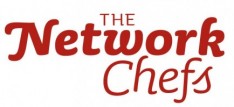There are user generated groups filled with jokes about rape and domestic violence along with gruesome images of assaulted women on Facebook. This week, Facebook announced that it’s stepping up efforts to eliminate such gender-based hate speech from its site after protesters sent around 60,000 tweets to advertisers making note of these posts. Facebook apologized saying it “failed to capture all the content that violates our standards.”
This announcement came after the weeklong social media campaign by women’s rights activists who organized around the hashtag #FBRape. This created a substantial amount of angry tweets and letters about Facebook, and especially its advertisers.
Experts say that women are the driving force behind the success of the #FBRape campaign. According to Lee RaInie, director of the Pew Research Center’s Internet Project, women make up the majority of users on sites like Facebook and spend more time on the networks and create more content than their male counterparts, making them the muscle of the social media world.
Soraya Cheamly, a writer and activist who is among the leading organizers of the campaign said, “We’re not a marginalized group on the sites. This isn’t some pet project, special interest they’re supporting – it’s more than half their users.”
On Tuesday evening, Facebook announced in a blog post that it would update its guidelines about hate speech and make sure its employees were accurately identifying prohibited content on the site, and taking steps to prevent users from posting such content anonymously.
Gerald Kane, an associate professor of information systems at Boston College and an expert on social media said, “When people have to use their real names, it enforces social norms. You’re not going to misbehave as much if your friends are watching you.”
The #FBRape campaign, organized by activist groups Women, Action, and the Media (WAM); The Everyday Sexism Project; and Ms. Chemaly, started last week with a call for Facebook users to contact companies whose ads were appearing on pages beside the violent and misogynist content and demand that they withdraw their advertising from the site.
Not only were the violent images an issue, but the fact that Facebook didn’t delete images that have been flagged as hate speech was also an issue. In the screenshot posted to the WAM site, a user reported an image of a woman shot in the head with the caption, “I like her for her brains.” Beneath it, an automated response from Facebook read, “We reviewed the photo you reported, but found it doesn’t violate Facebook’s Community Standard.”
During this campaign, activists sent out over 5,000 emails and more than 60,000 tweets to advertisers, which resulted in more than a dozen companies pulling ads from Facebook.
Source: www.yahoo.com
Contact Us for More Information – Like Us on Facebook – Follow Us on Twitter – Join our LinkedIn Group – Connect on Google +

